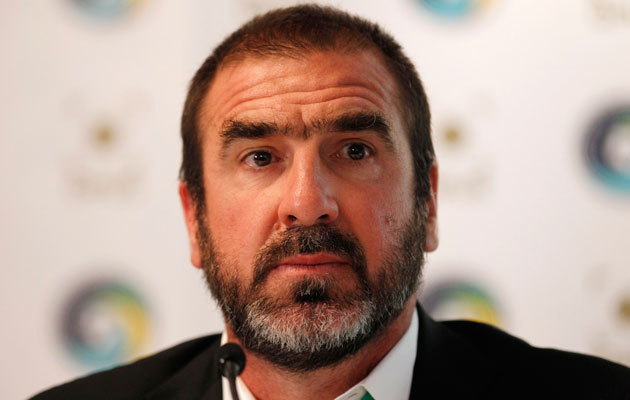Eric Cantona has kept himself busy since retiring from football in 1997. The Manchester United legend has turned his hand to acting and film-making and his latest venture is a documentary titled, “Football and immigration – a 100 years of common history”.
Speaking to euronews to promote his new film, Cantona has shared his thoughts on the issues of immigration and racism, as well as the latest tragedy to befall France, last week’s Charlie Hebdo massacre.
“It’s shocking, it’s very regrettable, but unfortunately it’s not the first time that the freedom of expression has been attacked,” he said.
“In October 1988, the Saint Michel Theater was set on on fire during an attack. Inside there were people watching Martin Scorsese’s film “The Last Temptation of Christ”. The attackers belonged to a Catholic, integralist group and it was in 1988, in France, in Paris. 40 people were injured, four seriously and it was a criminal attack, the aim was to burn alive 50 people.”
“What I want to say is that today, what just happened doesn’t have to be used against Islam. Fanaticism is everywhere, but it concerns just a minority of people. The rest are just simple Catholics, Buddhists, Muslims.
“I think that it’s important to take the long or historical view. If we just focus on current affairs, if we limit our view to today’s news, it’s like things never happened before. It’s important to recall that all this has already occured, it’s already happened with terrorist groups which were not Islamic.”
In the wake of the attack, Cantona said it was important that not all Muslims are tarred with the brush of terrorism.
“The danger would be to say that all Muslims are like that, but I’m convinced that 90% of Muslims feel very uncomfortable today and are ashamed of what’s happened,” he added.
“It’s important not to say, that a Muslim, is “moderate”, if he’s just a citizen like you or me. What does “moderate” mean anyway? Does it mean that Islam is an extremist religion? This is a latent provocation, you see? And it’s very dangerous. We don’t have to paint everybody with the same brush. That’s the danger I think.”
Asked whether he was afraid of the rise of extremism, Cantona suggested that the growth in support for the far right was a reflection of the depressed economic times.
“It seems to me that all this is linked to the economic crisis,” he noted. “It seems to me that if there hadn’t been a crisis in 1929 then Hitler would never have obtained power. And unfortunately, during crises, people fall into despair, they don’t know anymore what to hang on to and all this gives birth to extremism.
“What is dangerous, once again, is to take advantage of the despair of some people, to spread crazy ideas. Those who do it, create and develop hate for political purposes, for power purposes. And I think it’s sad and reprehensible.”
Asked whether football could help with social integration, Cantona said it had a role to play but that away from the pitch, even successful players still suffered discrimination.
“Yes, I think that sport in general, and football in particular, can do it,” he continued. “Because in sport, if you’re better than someone else, you play. This is what is beautiful in sport. What is regrettable, as Tigana says at the end of the documentary, is that as soon as you leave the football field – among managers, or within national football associations, the situation becomes like it is in the rest of society: if the colour of your skin “doesn’t correspond”, you might not have the place that you deserve.
“If in the rest of the society there were models, if youngsters in inner city schools, difficult schools, if only they had successful role models as businessmen, or lawyers who made it… But today they don’t have such models. They don’t exist, because our society is unfair, I think.”
Maverick and outspoken, Cantona continues to chart his own course. Last year he launched a withering attack on UEFA president Michel Platini for his support for the Qatar, but also for the Frenchman’s decision to award the European Under-21 Championships to Israel.
“Blatter begins to say it’s true Qatar is a bad idea, but it was an idea of Platini. It was also Platini who gave the European Championship under-21 in Israel, which is also disrespectful to the level of human rights,” Cantona told Le Parisien.







